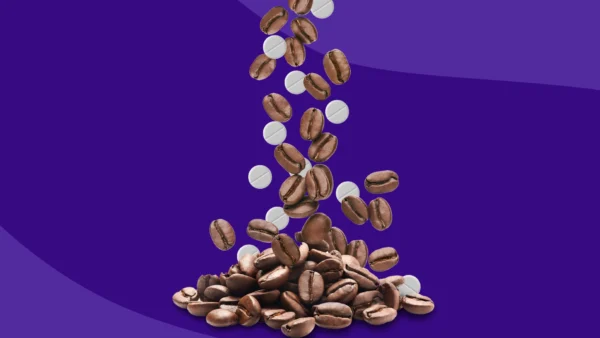Compare Eliquis alternatives | Pradaxa | Xarelto | Savaysa | Warfarin | Heparin | Natural alternatives | How to switch meds
Eliquis is a brand-name prescription drug used to reduce the risk of stroke and blood clots in people with nonvalvular atrial fibrillation (AFib). The generic name of Eliquis is apixaban. It is part of a group of drugs called anticoagulants and is further classified as a factor Xa inhibitor. Eliquis works by blocking the activity of factor Xa, a protein involved with the formation of blood clots. People with atrial fibrillation are at an increased risk of blood clots and stroke.
Atrial fibrillation develops when the atria, or upper chambers of the heart, are unable to pump blood efficiently. Blood can pool in the heart, increasing the risk of blood clots. Once formed, blood clots can break away from the heart and travel into the bloodstream, potentially clogging a blood vessel in the brain and leading to a stroke.
Eliquis is a commonly prescribed anticoagulant that helps prevent the formation of blood clots. However, if you are experiencing side effects, drug interactions, or poor blood clot control with Eliquis, you might consider other anticoagulant options. You and your healthcare provider can also decide to switch your medication due to other reasons like cost.
Continue reading to learn about Eliquis alternatives and how they compare.
What can I take in place of Eliquis?
Compare Eliquis alternatives |
||||
|---|---|---|---|---|
| Drug name | FDA-approved uses | Side Effects | Dosage for non-valvular atrial fibrillation | Coupons |
| Eliquis (apixaban) |
|
|
|
Eliquis coupons |
| Pradaxa (dabigatran) |
|
|
|
Pradaxa coupons |
| Xarelto (rivaroxaban) |
|
|
|
Xarelto coupons |
| Savaysa (edoxaban) |
|
|
|
Savaysa coupons |
| Coumadin or Jantoven (warfarin) |
|
|
|
Warfarin coupons |
| Heparin |
|
|
|
Heparin coupons |
Other alternatives to Eliquis
- Lovenox (enoxaparin)
- Fragmin (dalteparin)
- Acova (argatroban)
- Iprivask (desirudin)
- Angiomax (bivalirudin)
- Arixtra (fondaparinux)
Pradaxa (dabigatran)
Like Eliquis, Pradaxa is a direct oral anticoagulant FDA approved to treat atrial fibrillation. However, it contains the active ingredient dabigatran. Pradaxa works as a direct thrombin inhibitor that blocks a clotting factor called thrombin to reduce the formation of blood clots. The most common side effects of Pradaxa are indigestion, nausea, vomiting, and bleeding. It is usually given at a dosage of 150 mg twice daily.
Unlike Eliquis, the dose of Pradaxa does not need to be adjusted in people with liver problems. Pradaxa can also be used in children aged 8 years and older.
Xarelto (rivaroxaban)
Xarelto is an oral anticoagulant that is approved to treat atrial fibrillation. Unlike Eliquis, it can be used to reduce the risk of cardiovascular problems, heart attack, and stroke in people with coronary artery disease. It can also reduce the risk of heart problems, stroke, amputation, and decreased blood flow to the legs in people with peripheral artery disease.
Xarelto works as a factor Xa inhibitor that prevents the formation of blood clots. A study published in the Journal of the American Heart Association found that Xarelto has a higher risk of major bleeding side effects than Eliquis. Both anticoagulants are similarly effective, however, and Xarelto may be preferred over Eliquis due to its once-daily dosing.
Savaysa (edoxaban)
Savaysa has potent blood-thinning effects that make it an appropriate alternative to Eliquis for AFib patients. Like Eliquis, Savaysa works as a factor Xa inhibitor, but Savaysa only needs to be taken once daily instead of twice daily. The most common side effects of Savaysa are bleeding, rash, anemia, and abnormal liver function tests. Savaysa is not recommended in people with moderate to severe liver problems.
Warfarin
Warfarin is a vitamin K antagonist that blocks the liver from using vitamin K to make clotting factors. It is a drug that is generally cheap with predictable blood-thinning effects. Unlike the dose of newer blood thinners, the dose of warfarin may need to be adjusted based on international normalized ratio (INR) values through regular blood tests. Warfarin is approved to prevent blood clots in atrial fibrillation and heart valve replacement. The dosage will vary based on response to treatment.
Heparin
Heparin is a blood thinner that prevents the formation of blood clots. It is typically administered via intravenous injection or infusion. It can also be given as a subcutaneous injection. There is no oral form of heparin, and it is usually administered in a hospital setting.
Natural alternatives to Eliquis
Some foods and dietary supplements may have blood-thinning effects. However, there are no double-blind, controlled clinical trials that have compared natural alternatives to Eliquis and other direct oral anticoagulants.
Ginger
Ginger contains salicylate, the same active ingredient in aspirin. Aspirin works as an antiplatelet to prevent platelets from forming a blood clot. Ginger may help stop blood clotting in a similar way. However, the exact blood-thinning effects of ginger are unclear and more studies are needed.
Turmeric
Turmeric contains the active ingredient curcumin. This spice may have anti-inflammatory and blood-thinning properties. Turmeric can be added as a spice to foods, mixed with hot water to make tea, or taken as a dietary supplement pill. Studies have shown that curcumin may help maintain anticoagulant status.
Garlic
In addition to antimicrobial effects, garlic has been shown to have antiplatelet, blood-thinning effects. Although garlic may help thin the blood and prevent the formation of blood clots, the composition of garlic supplements can affect how well the garlic works. The blood-thinning effects of garlic may also not last long enough to confer benefits.
There may be other natural alternatives to Eliquis. While they may provide some benefits, certain foods and over-the-counter supplements can cause side effects or have drug interactions with other medications you may be taking. Consult with a healthcare provider if you are considering a natural alternative to Eliquis.
How to switch to an Eliquis alternative
Eliquis may be switched to an alternative anticoagulant through specific processes. The switching process may vary depending on the drug Eliquis is being switched to.
Switching from Eliquis to warfarin
- Stop Eliquis
- At the time the next Eliquis dose would be due, start warfarin and a parenteral anticoagulant
- INR levels should be monitored for two days after stopping Eliquis
- Discontinue the parenteral anticoagulant when INR is at goal
Switching from Eliquis to heparin
- Discontinue Eliquis
- At the time the next Eliquis dose would be due, start heparin
Switching from Eliquis to Pradaxa, Xarelto, or Savaysa
- Discontinue Eliquis
- At the time the next Eliquis dose would be due, start Pradaxa, Xarelto, or Savaysa
Eliquis should only be switched to an alternative under the guidance of a healthcare provider. Consult with a cardiologist or other healthcare provider for medical advice on the most appropriate treatment option.











